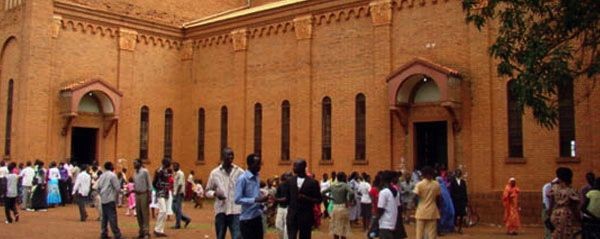Churches say they have been criticized as ‘partial’ by South Sudanese politicians involved in the civil war because the politicians are seeking others to blame rather than accepting responsibility themselves.
South Sudanese church leaders have participated at the peace talks in Addis Ababa as observers and ‘stakeholders’, a term used by the mediators. However, the clerics were criticized by the government in May for “behaving like rebels.”
Bishop Isaiah Majok Dau of the Sudan Pentecostal Church says that politicians accused the church of being partial because it always talks of peace and freedom.
Speaking on the ‘Wake Up Juba’ show on Bakhita Radio on Friday, the bishop said that blame-shifting was a normal practice in times of crisis because people do not want to take responsibility.
Similarly, Bishop Enock Tombe of the Episcopal Church said that the church has the right to express its opinion and that it is up to politicians to ignore or accept it.
As quoted by the Catholic Radio Network, the bishop said that nobody can fight the church and that people who are against the church would not survive.
The clerics also pointed out that the church existed in South Sudan before any political parties.
Speaking to Voice of Hope on Thursday, Bishop Moses Deng Bol of the Episcopal Church in Wau lamented that government and opposition forces are fighting while people are suffering and dying from diseases and hunger.
He also urged the South Sudanese president and opposition leader to compromise for peace to prevail in the country for the sake of innocent citizens.
Bishop Moses Deng Bol is quoted as saying that Salva Kiir and Riek Machar have the power to bring peace if they negotiate in good faith. He appealed to the two leaders to stop the bloodshed by sticking to the ceasefire agreement.
This is not the first time the church has come into tension with the politicians. In April, for instance, the government expressed reservations about a reconciliation initiative launched by the church.
The church-backed National Platform for Peace and Reconciliation would allow victimized communities to engage in truth-telling through forums and community consultations, according to an advisor to the initiative.
The advisor said that this exercise would allow communities “to confront those who have been in power and have misused and abused their power.”
File photo: The Roman Catholic Cathedral in Wau, South Sudan
Related coverage:
South Sudan reconciliation platform to gather ‘body of truth’ (14 April)
Truckloads of bodies removed from Juba military hospital (18 Dec.)




